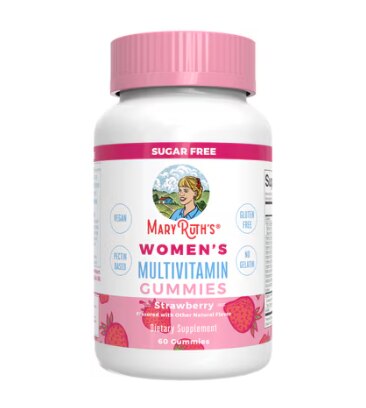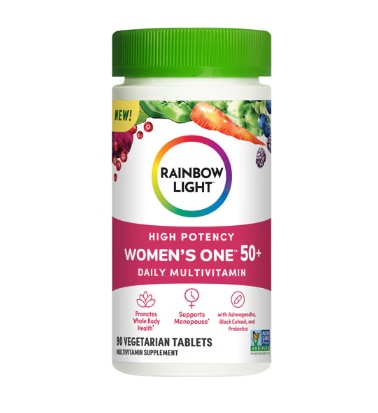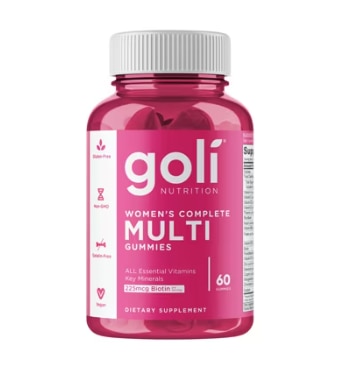Birthday bashes, Sunday barbeques, holiday fetes and even baby showers and book clubs: No matter the occasion, alcohol is often present. Toss in the long-standing belief that a glass of wine is the optimal way to unwind—and a pint of beer is the perfect lubricant during a company soiree or first date—and it’s no wonder why drinking is frequently accepted, if not downright expected.

As celebrated as drinking may be in some circles, there’s a dark underbelly to imbibing. And while we all know that excessive drinking is rife with consequences, new research demonstrates that even moderate drinking may have dangerous repercussions—a fact that refutes previous claims that a glass of alcohol per day could keep the doctor away.
In 2023, a large-scale meta-analysis that re-evaluated 107 studies over 40 years demonstrated that no amount of alcohol enhances health. This came on the heels of two other landmark studies on alcohol: One showed that consuming even a minor amount of alcohol diminishes cardiovascular health; the second revealed that drinking as little as one or two alcoholic beverages per day was connected to shrinkage in the brain.
Amidst all of this, women are dying from excessive drinking at an unprecedented rate—a phenomenon that started in the 1990s and ascended to new heights during the pandemic. Today, the Journal of the American Medical Association claims that alcohol-related deaths are skyrocketing fastest among the fairer sex. Educated, middle-aged women with high-status careers are, according to some experts, being the hit the hardest.
But what exactly does alcohol do to women’s bodies? And, if you suspect that you’ve been turning to alcohol too often, what can you do to curb your consumption, or quit drinking altogether?
Let’s dive into the topic.
Alcohol and women’s health
Historically, alcoholism was considerably more prevalent among men, with some estimates suggesting that the disease was 40 percent more common in males. Now, however, that gap has narrowed just as substantially: more women than men experience alcohol-induced emergency department visits, hospitalizations and deaths.
And yet, a woman doesn’t have to be diagnosed with alcohol use disorder (a mental health condition, defined by an inability to stop drinking despite negative social, professional, psychological and physical ramifications, that affects 12 million US women annually) to experience the shadow side of alcohol. To put it simply, women process alcohol differently than men.
Much of this comes down to a key enzyme called alcohol dehydrogenase, which helps break alcohol down in the body. Women naturally generate less amounts of it. This translates to two vital issues: 1) alcohol stays in a woman’s body longer, and 2)there’s a shorter time frame between drinking and experiencing medical repercussions. All of this is compounded by the fact that women organically have less water in their bodies to dilute the alcohol they ingest. Ultimately, the alcohol in their systems becomes more concentrated—and deleterious.
4 health complications of moderate drinking for women
Blackouts, vehicular accidents and hangovers are just three notorious consequences of excessive and binge drinking. Yet a mounting body of research illustrates that moderate drinking (or consuming one drink or less per day for women and two or less drinks per day for men) arrives with dozens of potential issues.
A few of the most concerning include an increased risk of:
1. Breast cancer
Breast cancer is the most ubiquitous cancer in women, with more than 13 percent of US women (or one in eight) developing an invasive form of the disease during their lifetime.
While there are a host of ways you can reduce your risk of breast cancer—from ensuring you obtain sufficient physical activity to maintaining a healthy weight—cutting alcohol from your diet may be one of the smartest moves to stave it off: According to the American Cancer Society, alcohol is the culprit behind 6 percent of all cancers and 4 percent of all cancer deaths in the U.S.
How does alcohol heighten your vulnerability to breast cancer, precisely?
Put simply, alcohol may:
- Result in weight gain, which, in turn, might raise your risk of cancer
- Boost estrogen levels (and other hormone fluctuations) linked to breast cancer development
- Decrease folic acid levels, which may provoke changes in gene behavior and result in cancer
Breast cancer, it should be said, isn’t the only type of cancer that may result from alcohol. Indeed, the World Health Organization (WHO) qualifies alcohol as a “toxic, psychoactive, and dependence-producing substance” and a Group 1 carcinogenic that may cause seven types of cancer. And here’s what stunning: recent data indicates that 50 percent of alcohol-attributable cancers are due to light and moderate drinking.
Other studies demonstrate that even a single glass of wine per day may increase a woman’s risk of cancer of the:
- Oral cavity
- Pharynx
- Esophagus
- Liver
- Colorectum
The bottom line? Eliminating alcohol, or significantly decreasing your consumption of it, is one of the best preventative measures you can take to lower your risk of breast and related cancers, which, all told, takes the lives of 600,000-plus US residents per year.
2. Liver disease
Fact: Alcohol impacts almost every organ and system in your body, regardless of your sex, including your esophagus, stomach and kidneys.
Still, your liver—which is responsible for detoxifying your blood—takes the brunt of it. In fact, years of drinking both moderate and heavy amounts of alcohol may cause swelling and inflammation in the liver—what’s commonly known as hepatitis. Over time, this may prompt irreversible cirrhosis of the liver, during which scar tissue replaces healthy tissue. Several issues may arise from this; portal hypertension, liver failure, malnutrition, kidney failure, and death are chief among them.
Alas, the early signs of liver damage are often too subtle to detect. Typically, symptoms emerge with advanced liver function decline, and may include what we normally associate with cirrhosis—yellowed skin and eyes (jaundice) and edema—as well as less known signs like red palms, mood changes and fat deposits on your eyelids.
Sound terrifying? It is, especially once you take into account that liver disease is the 11th leading cause of death in the US.
3. Cardiovascular disease
A decade ago, experts ranging from the Mayo Clinic to Harvard indicated that light alcohol consumption might help women and men ward off cardiovascular disease—the primary cause of death in the United States across all ages, sexes and ethnic groups.
Now? Not so much. A massive study of 430,000 people that was presented at the American College of Cardiology’s Annual Scientific Session revealed that alcohol consumption has a direct connection to a significantly higher risk of heart disease. Moreover, women are at a greater risk even in the absence of excessive and/or binge drinking.
Ultimately, the World Heart Foundation asserts that no amount of drinking is safe for your heart, in large part because of its detrimental effects on blood pressure. Bear in mind that cardiovascular disease kills one person every 33 seconds; this alone may be reason enough to opt for a mocktail on an evening out.
4. Depression and anxiety
Alcohol is frequently touted as both an uplifting and relaxing elixir, one that can give you a surge of happiness and a sense of serenity. While this can be true to some extent (depending on your reaction to alcohol), alcohol is first and foremost a depressant.
What does this mean, really?
It means that alcohol literally depresses your central nervous system (CNS). More specifically, alcohol impacts gamma-aminobutyric acid (GABA), an essential neurotransmitter that’s famed for its soothing effect. Temporarily, alcohol can indeed cause what we often associate with drinking: decreased angst, fewer inhibitions and sleepiness. For others still, alcohol can have an excitable effect and leave them chattier, warmer and wittier.
But this is where it gets tricky. For once the alcohol wears off, your brain struggles to find equilibrium amidst changes in your neurotransmitters. This can lead to both depression and anxiety—two mental health conditions that can wreak havoc on your work, relationships and capacity to cope with even the smallest challenges. To complicate all of this, alcohol-induced depression and anxiety may be exaggerated in those who have a pre-existing mental health condition like depression, anxiety, bipolar disorder or schizophrenia—and yet these diseases also drive the desire to drink.
Even more concerning? Light and moderate drinking may not be possible for some people, namely those who are genetically predisposed to alcohol use disorder. (Genetics account for a whopping 60 percent risk of developing the condition.) In such cases, the notion that alcoholism is a progressive disease may become a grim reality.
Meaning, of course, that if you’re keen on protecting your mental health, you may want to consider drinking a rare indulgence, if not remove it from your life entirely.
How can you stop—or limit—your alcohol consumption?
This is wholly individual and, for many, deeply personal
For some people, simply wanting to feel better, look better and sleep better may be reason enough to minimize their drinking or cease drinking altogether.
For others, professional and community support—whether that’s in the form of psychotherapy, Alcoholics Anonymous (AA), or rehab—might be necessary.
The main point is to remember that alcohol, even in minute amounts, is increasingly seen as a health hazard. And without your health, neither a birthday bash nor a book club can be enjoyed as they should.
Featured Products



The post The Negative Effects of Drinking Alcohol – Even in Moderation – on Women’s Health first appeared on The Upside by Vitacost.com.

